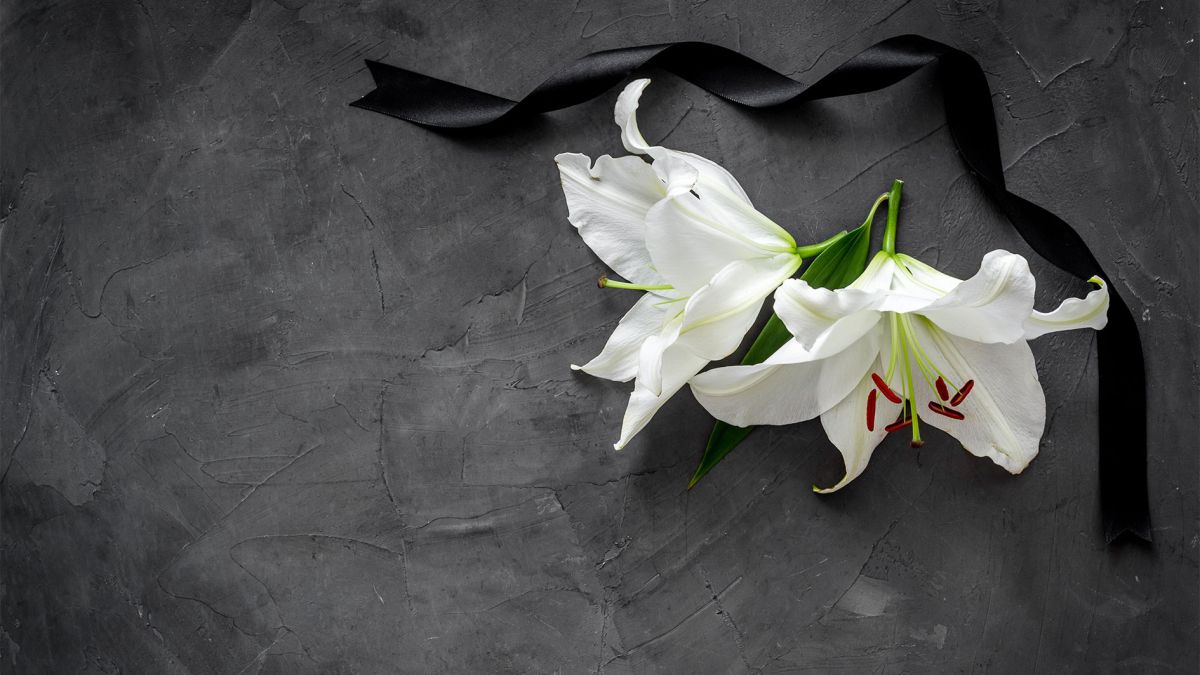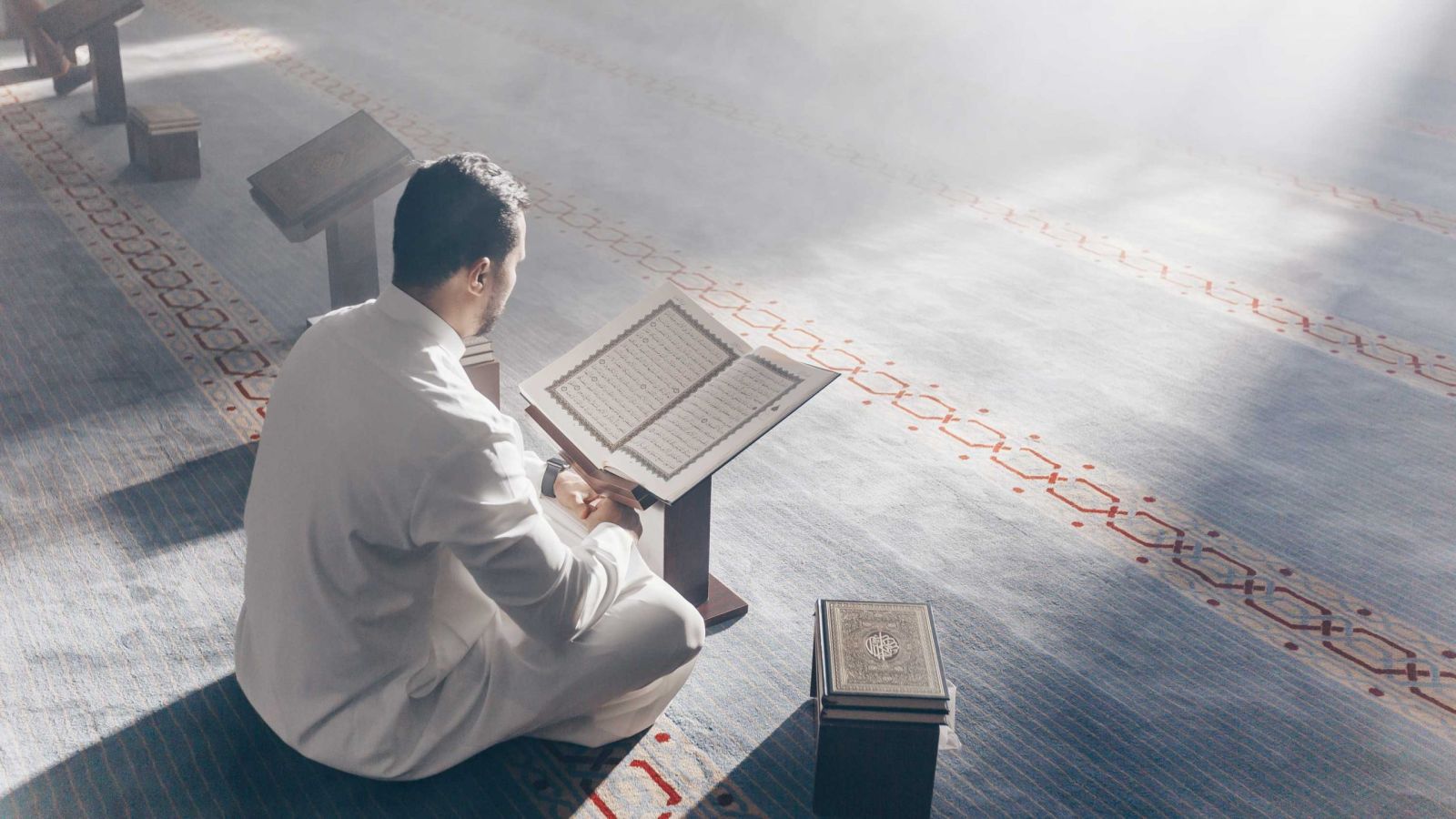Do Not Say: They Are Dead
Al-ʿAllāmah Muḥammad al-Amīn al-Shanqītī


As for the life that Allāh affirmed in the Qurʾān for the martyrs, and the life that has been affirmed for the Prophet (ṣallallāhu ʿalayhi wa-sallam) in which he is able to return the greetings of salām (peace) to whosoever sends it upon him, then both of them refer to the life of the barzakh (a state of existence between the present life and the Hereafter); an existence which cannot be truly comprehended by the people of this world.
Allāh, the Most High, said:
“And do not say about those who are killed fighting in the Path of Allāh that they are dead. Rather, they are alive!”
[Sūrah al-Baqarah 2:154]
This āyah is an apparent proof that the martyrs (those who are killed in the Path of Allāh) are not dead. Yet in another verse Allāh says, whilst addressing the Prophet Muḥammad (ṣallallāhu ʿalayhi wa-sallam); who is better than any and every martyr:
“Indeed, you will die, and they will die.”
[Sūrah al-Zumar 39:30]
The reply to this (apparent contraḍīction) is: That the martyrs are dead from a worldly point of view, this is why they can be inherited from, and why their wives can remarry again – a point about which the Scholars have ijmāʿ’ (consensus) upon. It is this death, the worldly death, that Allāh informed would occur to the Prophet (ṣallallāhu ʿalayhi wa-sallam). This is why Abū Bakr al-Siddīq (raḍī Allāhu ʿʿʿanhu) said, when the Prophet (ṣallallāhu ʿalayhi wa-sallam) passed away: “May my mother and father be sacrificed for you O Prophet of Allāh! By Allāh! Allāh will never comibne two deaths for you. You have died the death that Allāh decreed for you…Whosoever worships Muḥammad, let him know that Muḥammad is dead.” Then he deduced this by reciting the (above) āyah, and the Companions of the Prophet (ṣallallāhu ʿalayhi wa-sallam) accepted this.2
As for the life that Allāh affirmed in the Qurʾān for the martyrs, and the life that has been affirmed for the Prophet (ṣallallāhu ʿalayhi wa-sallam) in which he is able to return the greetings of salām (peace) to whosoever sends it upon him, then both of them refer to the life of the barzakh (a state of existence between the present life and the Hereafter); an existence which cannot be truly comprehended by the people of this world. So with regards to the martyrs there is a reference to this in Allāh – the Most High’s – saying:
“Rather, they are alive, but you do not perceive it.”
[Sūrah al-Baqarah 2:154]
The Prophet (ṣallallāhu ʿalayhi wa-sallam) explained this verse by saying: “Their souls are in the bellies of green birds, which hove lanterns suspended for them from Allāh’s Throne. They roam around in Paradise wherever they desire, then return to these lanterns …”3
As for (the life affirmed for) the Prophet (ṣallallāhu ʿalayhi wa-sallam), then he said: “There is no one who sends the greetings of salām upon me, except that Allāh returns my soul back until I reply to their greeting.” 4 And: “Indeed Allāh’s Angels roam around the earth conveying to me the greetings of salāms from my Ummah.” 5 So this life also cannot truly be comprehended by the intellects of the people of this world. Since, along with this (fact), his (ṣallallāhu ʿalayhi wa-sallam) blessed soul resides in the loftiest part of Paradise with the companionship of the highest company; a company higher than the souls of the martyrs. Yet the reality of how his pure soul links itself to his noble body (ʿalayhi al-Salām) – a body which the earth cannot consume – is a reality which no one knows, except Allāh alone. Thus, if this type of life was like the life that is understood by the people of this world, then why did Abū Bakr as-Siddīq (raḍī Allāhu ʿʿʿanhu) say that the Prophet (ṣallallāhu ʿalayhi wa-sallam) was dead, and why was it permitted to bury him? (And if he (ṣallallāhu ʿalayhi wa-sallam) did not die) then why was there a need to appoint a khalīfah (successor) after him. Also, those events; such as the (tragic) killing of ’Uthmān (raḍī Allāhu ʿʿʿanhu), or the differences which arose between the Companions, or that which occurred with ’Aa‘ishah (raḍī Allāhu ’anhaa) need not have happened if he (ṣallallāhu ʿalayhi wa-sallam) were still alive! Since if that were the case, they could have referred judgement back to him concerning those issues in which they differed (if he (ṣallallāhu ʿalayhi wa-sallam) were still alive and could fulfill such needs.)
Thus, just as the Qurʾān is explicitly clear that the martyrs are actually living; due to Allāh – the Most High’s – saying: “Rather, they are alive.” Then likewise, the Qurʾān is just as explicitly clear that this state of living is one whose reality cannot be truly understood by the people of this world; due to Allāh’s saying: “But you do not perceive it.” Similarly, just as it is established that the Prophet (ṣallallāhu ʿalayhi wa-sallam) is living in the grave; replying to the greetings of salām, yet even though his Companions actually buried him, they were still unable to perceive this state of living. Thus, we know that this state of living is likewise a reality which cannot be truly understood by the people of this world. However, what could make this more clear is by considering the example of someone who is asleep. The state of one who is asleep differs from that of one who is awake in many ways, including the fact that the one who sleeps experiences dreams which can be understood. And Allāh knows best.
Imām Ibn al-Qayyim (d751H) – raḥimahullāh– said:
“It is known by necessity that the Prophet (ṣallallāhu ʿalayhi wa-sallam) body is intact and has not decayed. The Companions asked him, ‘How are we to send greetings of salām upon you when your body has decayed!’ So he (ṣallallāhu ʿalayhi wa-sallam) replied: “Indeed Allāh has prohibited the earth from consuming the bodies of the Prophets.” So if his body was not in his grave, then why would he respond to this question! And it has been authentically established from him that he said, “Indeed Allāh’s Angels roam around the earth conveying to me the greetings of salāms from my Ummah.” 7 It is authentic from him that he once came with Abū Bakr and ʿUmar (into the mosque) and said, “We shall be raised up like this on the Day of Resurrection.” 8 It is also established that he (ṣallallāhu ʿalayhi wa-sallam) saw the Prophet Mūsá praying in his grave on the night of his Israa‘ (Heavenly Ascension), and he also saw him (on that same night) in the sixth or seventh Heaven. 9 So the soul is in one place and is connected to the body, which resides in the grave. Similarly, the Prophet (ṣallallāhu ʿalayhi wa-sallam) is in his grave; replying to the greetings of salām sent to him, along with the fact that his soul resides in the loftiest part of Paradise along with the highest companionship. So there is no contraḍīction between these two matters; since the affairs of the souls is one thing, whilst that of the bodies is another.” 10
So in these words is a proof that the life of the barzakh, that was previously mentioned, is a life whose reality is not known to the people of this world. About this Allāh – the Most High – said: “Rather, they are alive, but you do not perceive it.” And complete and perfect knowledge is only with Allāh.
Endnotes:
[1] Adwaa‘ul-Bayān (10/21-23)
[2] Related by al-Bukhārī (no. 124), from ’Aa‘ishah (raḍī Allāhu ’anhaa). Refer also to al-Bukhārī (no. 3667, 4452)
[3] Related by Muslim (no. 1887), from Ibn Masʿūd (raḍī Allāhu ʿanhu).
[4] Ḥasan: Related by Aḥmad (no. 10817), from Abū Hurayrah (raḍī Allāhu ʿanhu). It was authenticated by Ibn Taymīyyah in his Majmūʿ al-Fatāwá (1/233).
[5] Ṣaḥīḥ: Related by al-Nisāʾī (2/43). It was authenticated by Shaykh al-Albānī in Ṣaḥīḥ Sunanin-Nisāʾ‘ee (1/274).
[6] Ṣaḥīḥ: Related by Abū Dāwūd (no. 1047), from Abū Hurayrah. It was authenticated by Shaykh al-Albānī in his Takhreejul-Mishkaat (no. 1361).
[7] Ṣaḥīḥ:Refer to endnote (no. 5)
[8] Da’eef: Related by Ibn Mājah (no. 99). It was declared to be weak by Shaykh al-Albānī in Takhreejul-Mishkaat (no. 6054), because the chain of narrators contains Saʿīd Ibn Marlamah, who is not a strong narrator.
[9] Related by Muslim (7/102)
[10] Kitāb al-Rūḥ
Most Popular: Last 30 Days

















